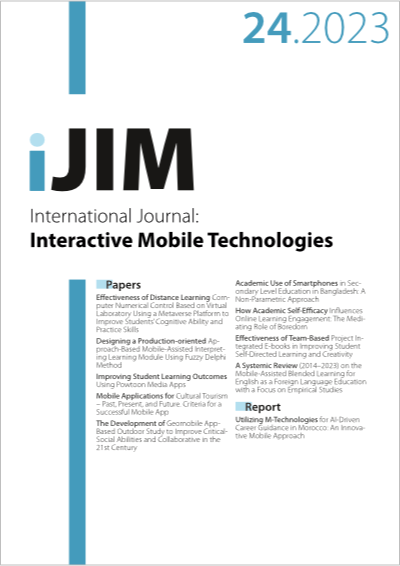Academic Use of Smartphones in Secondary Level Education in Bangladesh: A Non-Parametric Approach
DOI:
https://doi.org/10.3991/ijim.v17i24.41231Keywords:
Smartphones, M-W U Testing, Secondary Students, Rural, Urban, Developing Country, BangladeshAbstract
This study aims to examine the use of smartphones for educational purposes and the acceptance of online learning among secondary students. To investigate the academic utilization of smartphones among secondary students in Bangladesh, a sample of 384 students from different districts of Bangladesh were surveyed. The survey was conducted using a selfadministered, semi-tailored computerized questionnaire. The collected data was analyzed using IBM SPSS statistics 26 and the Mann-Whitney U test. The findings indicate that male students used smartphones for educational purposes with greater confidence and less difficulty than female students. On the other hand, students in 8th to 10th grade classrooms reported a greater willingness to use smartphones for academic purposes, with urban students being more enthusiastic than their rural peers. The study’s findings have implications for the government, policymakers, educators, and non-governmental organizations (NGOs). They highlight the importance of ensuring equal access to resources and tools that support academic success, as well as addressing the adverse effects of excessive smartphone usage. In addition, the government and NGOs should prioritize the elimination of inequities between rural and urban areas and provide subsidies to rural students.
Downloads
Published
How to Cite
Issue
Section
License
Copyright (c) 2023 Md. Fouad Hossain Sarker, Saida Mahamuda Rahman, Shithee Ahmed, Md. Khaled Sifullah, Md.Salman Sohel, Mohammad Faisal Akber, Md. Kabirul Islam, Md. Kamal Hossain, Shabnam Mustari Lia

This work is licensed under a Creative Commons Attribution 4.0 International License.



